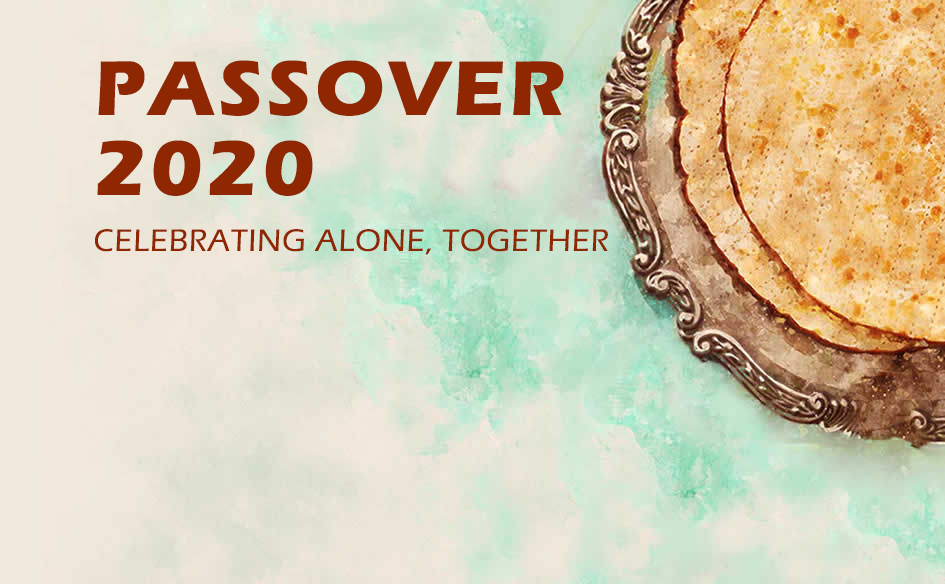As we prepare for our Passover seders in this very challenging year, I would like to share two teachings from our tradition that strike me as more relevant than ever in our current circumstances.
The first comes from the description of the original Pesach, in Exodus 12, where Moses relays God’s instructions to the Israelite community:
Go pick out lambs for your families and slaughter the Passover offering. Take a bunch of hyssop, dip it in the blood that is in the basin, and apply some of the blood that is in the basin to the lintel and to the two doorposts. None of you shall go outside the door of his house until morning. . . Thus the Holy One will pass over the door and not let the Destroyer enter your home.
The eve of the Exodus is a sacred time, but it is also fraught with death and danger. While the death of the first born is supposed to afflict only the Egyptians, Moses knows that if the Israelites wish to be spared, they must take proper precautions and stay at home, lest the Destroyer strike them down indiscriminately, together with their taskmasters. The implication is clear: during a plague, the Angel of Death potentially spares no one.
I decidedly do not see the COVID 19 pandemic as a vehicle for God’s wrath. Still, there is a lesson for our in the original Pesach story: Stay home! This must be a sacred obligation, for it is truly the best way to preserve life and health for both ourselves and others. Distance physically, while reaching out electronically. Check in on one another but do not go out. And express your deep gratitude toward those who do not have this luxury of staying in, like health care workers and those running the businesses that provide essential services (including cashiers, those delivering goods, and many other lowly-paid workers). Tip even more generously than usual. Support the hospitals. And if you truly must go out yourself, be sure to wear a mask!
**********
The second Pesach teaching for this unusual time comes from the Haggadah itself, where, toward the beginning of the Seder, we break the matzah and recite over it:
Ha Lachma Anya
This is the bread of affliction, the poor bread,
which our ancestors ate in the land of Egypt.
Let all who are hungry come and eat.
Let all who are in want, share the hope of Passover.
As we celebrate here, we join with our people everywhere.
This year we celebrate here.
Next year in the land of Israel.
Now we are still in bonds.
Next year may we all be free.
This is the bread of affliction, the poor bread,
which our ancestors ate in the land of Egypt.
Let all who are hungry come and eat.
Let all who are in want, share the hope of Passover.
As we celebrate here, we join with our people everywhere.
This year we celebrate here.
Next year in the land of Israel.
Now we are still in bonds.
Next year may we all be free.
Now, more than ever, it is incumbent upon those of us blessed with abundance to share it with those who are not. In the midst of this virus, the number of vulnerable people in our community is expanding exponentially. With the illness raging and the economy grinding to a halt, hunger and homelessness threaten so many!
Hence the obligation upon those of us who are secure to extend our support to those who are not. If you are able, please donate generously—including your forthcoming government stimulus check—to care for those facing deep financial insecurity. In particular, for this Pesach, I want to urge you to give to two local organizations. Jesse Tree works in partnership with the city of Boise to prevent folks from falling into homelessness, by providing emergency rental assistance and relevant social services. You can support them here
The Jewish Assistance Fund of Idaho (JAFI) cares for those in need within our own community. That number is growing and we anticipate unprecedented pressing need in the coming weeks. You can support them here:
Let all who are in want share the hope of Passover.
Next year in Jerusalem! Next year may we all be free of hunger and illness and need!
A safe and meaningful Pesach, all.
